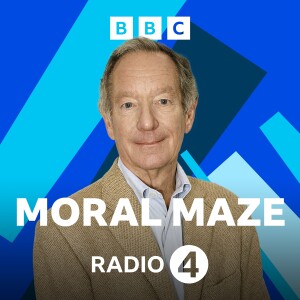
One moment in the Olympics opening ceremony in Paris clearly touched a nerve: the tableau of mostly drag queens believed to be parodying Da Vinci’s ‘Last Supper’. Organisers have since denied this was the intention and apologised for the offense caused. Many commentators, including non-believers, declared it “blasphemous”, and “a denigration of Western culture”. While others, Christians among them, considered that response to be an over-reaction. Stepping back from the immediate and perhaps predicable outrage drawn along culture war lines, is the deeper question of what we consider to be ‘sacred’ and ‘profane’ in a largely secular Western society. What, if anything, is sacred? Does the idea only make sense in relation to the concept of God? Does it have a moral function or is it more about personal spirituality? Maybe nothing is sacred, since categorising something as such puts it beyond scrutiny? Or can the concept be widened, even secularised, to take in, for example, the idea of ‘profaning’ the natural world or hollowing out the things we hold to be of value by turning them into commercial transactions? Are the concepts of ‘sacred’ and ‘profane’ still important? And if so, what role do they have in the 21st century?
Producer: Dan Tierney Assistant producer: Ruth Purser
Panel: Anne McElvoy Giles Fraser Ash Sarkar Tim Stanley
Witnesses: Melanie McDonagh Andrew Copson Fergus Butler-Gallie Francis Young
More Episodes
 2018-05-31
2018-05-31
 2018-03-29
2018-03-29
 2018-03-22
2018-03-22
 2018-03-15
2018-03-15
 2018-03-08
2018-03-08
 2018-03-01
2018-03-01
 2018-02-22
2018-02-22
 2018-02-15
2018-02-15
 2018-02-09
2018-02-09
 2017-12-08
2017-12-08
 277
277
 2017-11-30
2017-11-30
 278
278
 2017-11-24
2017-11-24
 255
255
 2017-11-16
2017-11-16
 335
335
 2017-11-09
2017-11-09
 274
274
 2017-11-02
2017-11-02
 269
269
 2017-10-26
2017-10-26
 341
341
 2017-10-19
2017-10-19
 314
314
 2017-10-11
2017-10-11
 344
344
 2017-08-10
2017-08-10
 157
157
 2017-08-03
2017-08-03
 168
168
Create your
podcast in
minutes
- Full-featured podcast site
- Unlimited storage and bandwidth
- Comprehensive podcast stats
- Distribute to Apple Podcasts, Spotify, and more
- Make money with your podcast
It is Free
- Privacy Policy
- Cookie Policy
- Terms of Use
- Consent Preferences
- Copyright © 2015-2024 Podbean.com



